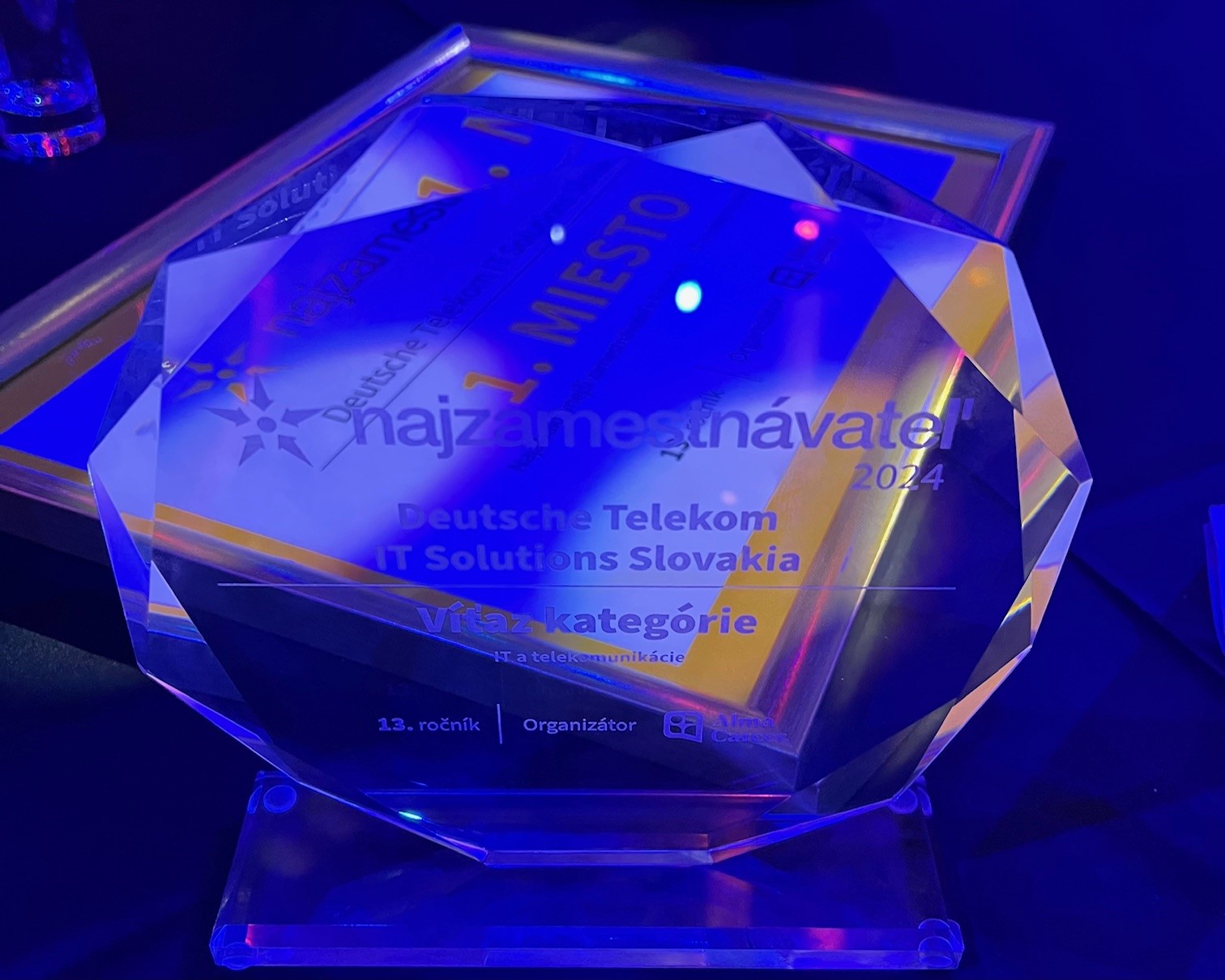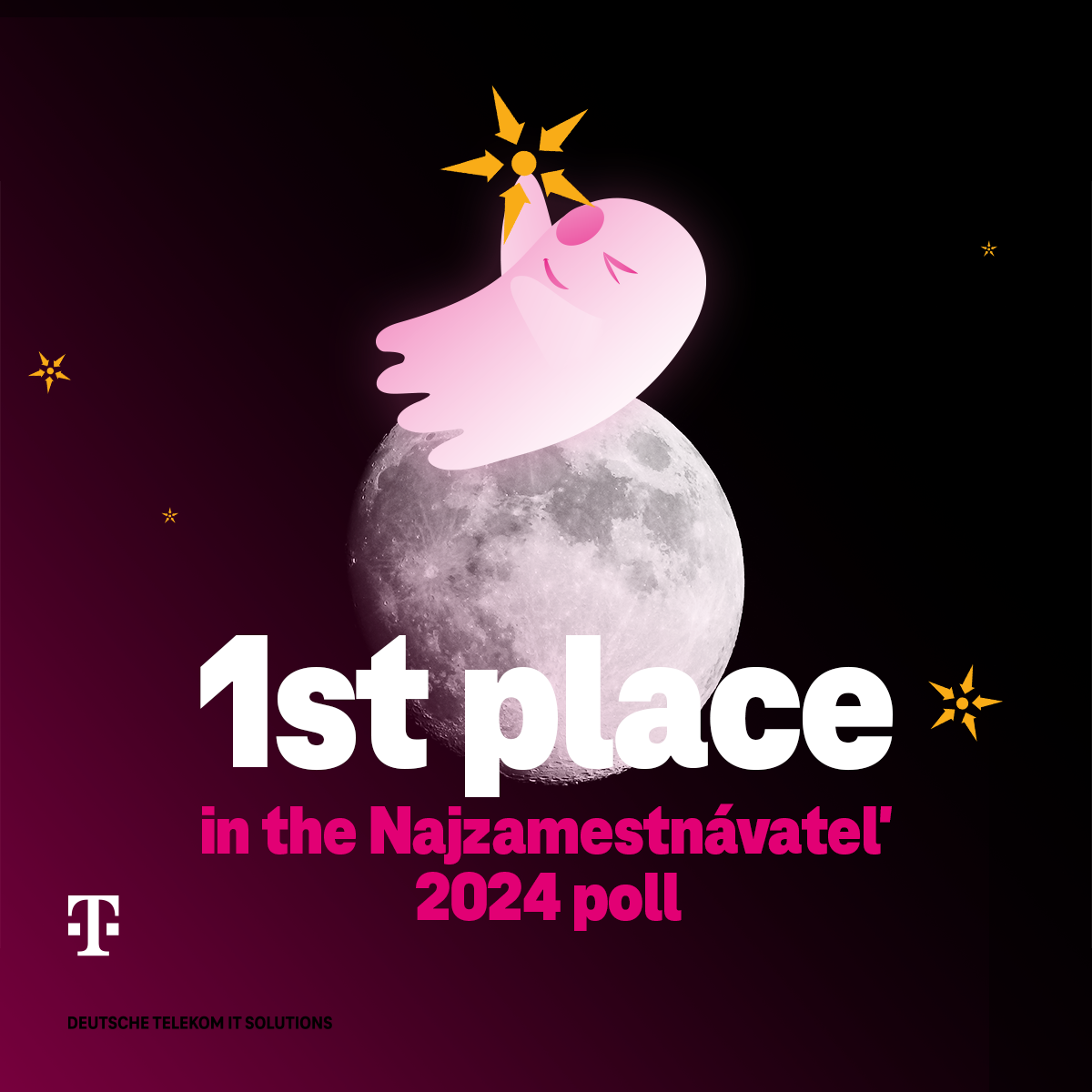Lenka Zajacová: Diversity results can only come after a while, but these results move you forward individually and as a team
Košice, January 31, 2025 – The prestigious Employer of the Year survey has once again recognized companies that create the best working environments in Slovakia. In the IT and telecommunications category, this year’s winner is Deutsche Telekom IT Solutions Slovakia (formerly T-Systems Slovakia).
“This award is a great honor for us, but also a commitment to continue building an environment where people can grow, innovate, and develop their potential. I would like to thank the entire team and all our colleagues who contribute to making our company a great place to work,” said Ľubor Žatko, Managing Director of Deutsche Telekom IT Solutions Slovakia.

Deutsche Telekom IT Solutions Slovakia is committed not only to providing high-quality IT services but also to supporting education, social innovation, environmental protec
tion, and charitable initiatives. “This recognition is fantastic news and a well-deserved acknowledgment for all our colleagues. I am also delighted that the top two spots were taken by companies from the Deutsche Telekom Group. This confirms that Deutsche Telekom is the strongest brand in Europe, and we are proud to be part of it,” said Igor Stančik, Vice President for Human Resources, referring to Slovak Telekom, which secured second place.
The Employer of the Year award is based on public and employee voting, evaluating corporate culture, working conditions, and employee benefits. This victory reaffirms that Deutsche Telekom IT Solutions Slovakia is one of the most attractive employers in Slovakia.

About Deutsche Telekom IT Solutions Slovakia
Deutsche Telekom IT Solutions Slovakia is a leading IT company and part of Deutsche Telekom Group, one of the largest telecommunications providers in Europe. The company specializes in delivering innovative IT solutions and services to clients across various industries. Its portfolio includes cloud technologies, cybersecurity, IT infrastructure, software development, and IT system operations.
Headquartered in Košice, the company employs 4,000 IT professionals, making it one of the largest IT employers in Slovakia.

